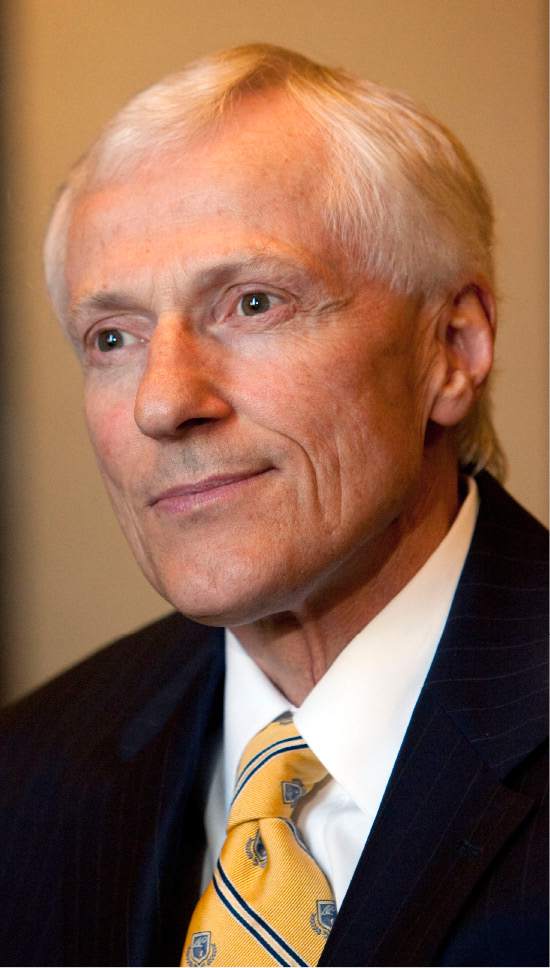This is an archived article that was published on sltrib.com in 2017, and information in the article may be outdated. It is provided only for personal research purposes and may not be reprinted.
The Republican-controlled Congress and President-elect Donald Trump have promised to repeal the Affordable Care Act (ACA). The ACA was financed by several taxes and spending cuts. One of the most significant was a huge cut in Medicare. It is imperative that, in replacing the ACA, Congress restore critical Medicare payment cuts that will affect healthcare for all Americans — not just seniors.
If Congress decides to repeal and replace the ACA, we stand ready to work with our congressional delegation and Gov. Gary Herbert to develop policies that will facilitate the best, safest and lowest-cost healthcare for Utahns.
Medicare cuts to hospitals constituted the second largest funding source for the ACA — reductions to the tune of $155 billion over 10 years. The effect of that was to slash payments for services in Utah hospitals and clinics by $1.5 billion. One of the basic promises made to Americans at the inception of the ACA was that the money from these severe cuts would be offset by enhanced funding from other sources. One of the ways the funding from these Medicare cuts was to be re-routed to hospitals and clinics was through expanding Medicaid to all people under 138 percent of the federal poverty level (FPL). Utah chose not to expand Medicaid; thus our facilities have not recouped a big part of the Medicare cuts they have sustained since the ACA was implemented.
If our federal lawmakers repeal and replace Obamacare, they will do away with the funding sources which were tapped to make up for the Medicare cuts, such as federally financed Medicaid expansion.
But this issue is about far more than whether or not hospitals make money.
I am deeply concerned about the access-to-care limitations that will result from congressional inaction to restore this essential funding. It would impair hospitals and doctors' ability to render healthcare in Utah, especially in these essential areas: 1) Rural Utah hospitals and clinics, and 2) Safety net and community hospitals.
• Rural hospitals and clinics. Rural Utahns are uninsured at a far greater rate than individuals along the Wasatch Front. Also, more rural citizens rely on Medicaid than those in urban areas. Medicaid pays hospitals and doctors very low rates. All of this creates great fiscal pressure on rural healthcare facilities and providers — pressure which exists today under the ACA. If income streams within the ACA are cut off and the draconian Medicare cuts are not restored, the availability of healthcare in rural Utah could be compromised as funding dries up.
• Safety net and community hospitals. Large urban safety net hospitals serve low-income and other vulnerable groups, often in the emergency room. Many of these patients have no insurance, so these services must be subsidized from other sources. Even Medicaid doesn't fully reimburse hospitals and other providers for their costs. If funding is denied hospitals from other offsetting sources, they will have fewer dollars with which to subsidize services to the poor and the uninsured. Many of the same concerns apply to community hospitals, which provide the preponderance of the everyday medical/surgical care Utahns have come to expect from their local hospitals.
Without restoration of these cuts, many facilities — especially safety net and community hospitals and clinics that more often cater to the needs of low-income and elderly patients — will be forced to prioritize scarce resources for things such as behavioral health or neo-natal intensive care. Communities may lose the convenient access to some medical services they're used to; patients may need to travel farther.
Utah's hospitals will always do their best to give the highest level of quality; we sincerely hope Congress's actions will not handcuff our ability to provide the tens of millions of dollars of free or subsidized care we now render.
Hospitals urge our congressional delegation to make sure that the 2010 ACA-related Medicare funding cuts are restored at the same time that the ACA is repealed. These funds are crucial to maintaining the safety net in Utah.
Greg Bell is president and CEO of the Utah Hospital Association.



